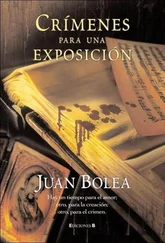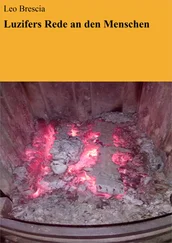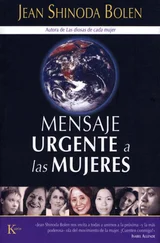Jean Rouaud - Of Illustrious Men
Здесь есть возможность читать онлайн «Jean Rouaud - Of Illustrious Men» весь текст электронной книги совершенно бесплатно (целиком полную версию без сокращений). В некоторых случаях можно слушать аудио, скачать через торрент в формате fb2 и присутствует краткое содержание. Год выпуска: 2011, Издательство: Arcade Publishing, Жанр: Современная проза, на английском языке. Описание произведения, (предисловие) а так же отзывы посетителей доступны на портале библиотеки ЛибКат.
- Название:Of Illustrious Men
- Автор:
- Издательство:Arcade Publishing
- Жанр:
- Год:2011
- ISBN:нет данных
- Рейтинг книги:4 / 5. Голосов: 1
-
Избранное:Добавить в избранное
- Отзывы:
-
Ваша оценка:
- 80
- 1
- 2
- 3
- 4
- 5
Of Illustrious Men: краткое содержание, описание и аннотация
Предлагаем к чтению аннотацию, описание, краткое содержание или предисловие (зависит от того, что написал сам автор книги «Of Illustrious Men»). Если вы не нашли необходимую информацию о книге — напишите в комментариях, мы постараемся отыскать её.
Of Illustrious Men — читать онлайн бесплатно полную книгу (весь текст) целиком
Ниже представлен текст книги, разбитый по страницам. Система сохранения места последней прочитанной страницы, позволяет с удобством читать онлайн бесплатно книгу «Of Illustrious Men», без необходимости каждый раз заново искать на чём Вы остановились. Поставьте закладку, и сможете в любой момент перейти на страницу, на которой закончили чтение.
Интервал:
Закладка:
The suitcases piled into the back had very soon got the better of the suspension. We could have written a guide to the state of the Breton roads in which the milestones would have replaced the stars and the road signs. People who protested in the name of tradition against the paving of the cobbled roads, which were still numerous in the region, should simply have got on board the Dyna. Our teeth never stopped rattling all the way through the ancient towns.
To be honest, it wasn’t only his heavy suitcases that were responsible for the state of the shock absorbers. His hobby hadn’t helped. It was during this period that he started to collect unusual stones. During the week he spotted them at the side of the road, stopped, took the smallest ones, rolled the bulkier ones into the ditch or hid them behind a tree, and when he got home he marked them on his wall map with brass-headed studs — the only ones to be stuck in the open country. On some Sundays, the whole family set off to retrieve them.
Our postman Cheval had planned an ideal garden that he never had time to make, contenting himself with piling up his booty at the far end of the plot in anticipation of his great building project. Father had made a few pencil sketches featuring rockeries and a waterfall, which evolved every time he made a new discovery. Some of the sketches were more definitive. His rocky chaos, from which a spring would have gushed, was to have been six feet high. Concealed within its mass was a rudimentary but sophisticated device, very much like the heating pipes in the bedroom, which, by extending the gutters on the little garden house where our Aunt Marie lived (actually his aunt), would have fed his system with rainwater. Theoretically, in accordance with the principle of communicating vessels, the fountain would have risen to the eaves, but since he was afraid that the reality might prove somewhat rebellious, and even though rain is far from being a rare commodity in the Lower Loire, he had planned a parallel circuit running from the old well, disused since we had been connected to the water main. This circuit would have been used only occasionally, when inquisitive people were visiting, or to welcome friends.
There were two goldfish in a bowl, waiting for the basin at the foot of the rocky chaos that they had been promised. They had been the origin of the whole project. Out of compassion, on account of the exiguity of their abode. But the idea had already been in the air. Now that it was once again possible to make concessions to the superfluous, kitchen gardens and the “fear of going without” were retreating before the invasion of lawns adorned with cherubs, flowered cartwheels, or Snow White’s seven pocket-sized companions captured in their principal activity, which consisted of pushing a child’s wheelbarrow filled with succulent plants. Skillful gardeners trimmed their box trees into geometric shapes, and the most artistic among them made sculptures of elephants and hippopotamuses out of the solid masses of their plants. There was something of the secular creche about the whole thing, although it lacked a messiah to federate it.
Regrouping certainly was the order of the day. We didn’t know whether it was the lawn mowers or the authorities that had started it, but the go-ahead had been given to put an end to the suspicion of obscurantism and backwardness hanging over the region. Substitute order for chaos, light for shade, white snow for mud. The rural civilization passed the word around: We aren’t peasants any longer. You’ve got the message, said the savior from the ministry that was united in its determination to raze the area: You are small farmers.
We were able to turn this to our advantage. The powerful bulldozers unearthed stones galore. One Sunday, this led to gleaning our best harvest yet among the unwanted debris of finis terrae.” Early that afternoon we had toured the Carnac Alignments. This was not the first time that our very own Le Nôtre had sought inspiration from the landscape gardeners of the Neolithic period. When his route passed the site, if he had a little time he would stop, walk a few steps among the menhirs, and then, sitting down on a fallen stone, fish out his pack of Gitanes and pensively smoke a cigarette, after automatically tapping it on his thumbnail to push down the tobacco. He claimed he felt in harmony with the tall steles gangrened by time and the elements, turning up the collar of his jacket when the wind freshened, running a hand through his hair when a slight drizzle sent him back to his car. He would sit there for a moment, watching the seabirds hover, the sparrows flutter above the heather, and, between two puffs of smoke, his neck stretched up toward the sky, he would try to solve the incomprehensible enigma of this faceless statuary. As he had done some research, he was aware that no one knew much about the question, which put him on equal terms with the most eminent specialists of megalithic architecture. For an autodidact, whose every reflection was thwarted by the authority of the scholars, this was a godsend. In such cases he could let his mind wander with impunity. Among the theories on the meaning of the alignments, from the most serious to the most fanciful, he gave no credit to the idea of landing strips for Martian aircraft, though he was fascinated by the hypothesis of a cosmic calendar capable of fixing the date of the harvests and commemorating the birthday of the prince, a sort of gigantic almanac that lacked only the names of the saints carved on the stones and a few gardening tips on the art and manner of cutting and arranging such granite bouquets. Although a bit cumbersome and inconvenient to handle, this ephemeris for the birds — seeing that they could only consult the sky — at least had the advantage of opening up vast horizons to reverie, and satisfied a very real talent for mathematics, if we can judge by the ease with which he solved the difficult problems we brought home from school. This interpretation of Carnac presented the world with a coded allegory. Everything had been said, foreseen, enciphered: all you had to do was measure. As he always carried a tape measure with him to check the diameter of the glasses and flower pots, he had noted down the distance between several menhirs that, five thousand years before the master, were supposed to reproduce the ideal ratio set out in Pythagoras’s theorem: three, four, five. But the results had turned out to be too random for anyone to be able to predict the day and time of the next eclipse with any accuracy. On one occasion he had even planned to watch the sun rise above the moor at the Kermario Alignment outside Carnac on the June solstice. According to the tales of the odd early risers, pseudo-druids, or neo-followers of Ra, the first ray scrupulously followed one pathway until it planted itself right in the middle of a cromlech, which, like the door of the Holy Sepulcher, represented the world and was rebaptized the Telluric-Axial Point of the Universe. But since the same ray was expected in several places at the same time, because it also had to cross the Merchants’ Table in Locmariaquer, perforate the tumulus on the Island of Gavrinis, and also appear at the top of some other tall menhir, it was obvious that it couldn’t satisfy everyone. On the previous evening the sky had been overcast, and when in the middle of the night in his little hotel room near Auray he had heard rain, he wisely switched off his alarm clock and preferred to go back to sleep.
Visitors were met on the site by troops of children who clustered around them and without any preliminaries started to intone a sort of lament, not one word of which was comprehensible. They churned it out in rapid monotones, as if they were reciting fables or the articles of the catechism, with the voice falling at the end of each phrase, which obliged the little officiants to keep taking noisy breaths before embarking on the next phrase. What was it all about? We found out much later: it was the legend of Saint Comely, who, pursued by the Roman legions, was only saved by the intervention of the Lord, whose sacred breath had turned this army of assailants into stone statues. The government of the day hadn’t thought of repatriating them, as is usual with the bodies of soldiers, and we were very glad of it because, apart from their removal being a tricky business, it would have meant the end of Carnac. But at the time, although we listened with all our ears, and did manage to catch a couple of identifiable syllables on the wing and put them together to reconstitute a word, it was extremely difficult to render unto Caesar his legions, and unto God his petrifying breath. As a result the mystery of the standing stones thickened and was coupled with a further question: What language were they expressing themselves in? in the Auray patois? in Gallo-Vannetois? in proto-Gallic? in low Latin? in pig Latin? in low Breton? in musical comedy Breton? It was Greek to us. Unless, possessed by a phenomenon inherent in that haunted place, moved by one of those secret turns of mind that can even manage to make tables speak, what came out of the mouths of the medium-istic little bards was the original language of the ancient builders, like a delayed action echo sent back by the stone walls. However that may be, these children were not slow on the uptake, because the moment their anthem was finished they held out their hands in the pure tradition of “don’t forget the guide.” Then the fathers would open their purses and halfheartedly search for the coin they judged adequate to reward the singing and the music. Because with regard to the part that interested us, the words, we were far from having had our fill. Then someone remarked that it was the same with opera, you never understood what they were saying, although considering the general ineptitude of the text this was just as well. All the emotion was transmitted through the music. Applied to our little choristers, whose monotonous notes didn’t allow the slightest depth of feeling to filter through, such a remark made you think that the solid architects of the savage ages must have had hearts of stone.
Читать дальшеИнтервал:
Закладка:
Похожие книги на «Of Illustrious Men»
Представляем Вашему вниманию похожие книги на «Of Illustrious Men» списком для выбора. Мы отобрали схожую по названию и смыслу литературу в надежде предоставить читателям больше вариантов отыскать новые, интересные, ещё непрочитанные произведения.
Обсуждение, отзывы о книге «Of Illustrious Men» и просто собственные мнения читателей. Оставьте ваши комментарии, напишите, что Вы думаете о произведении, его смысле или главных героях. Укажите что конкретно понравилось, а что нет, и почему Вы так считаете.












